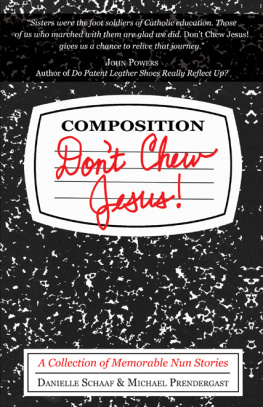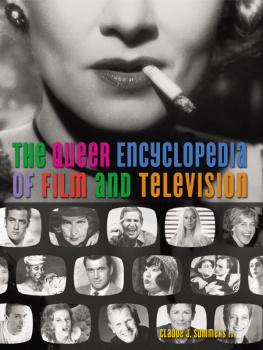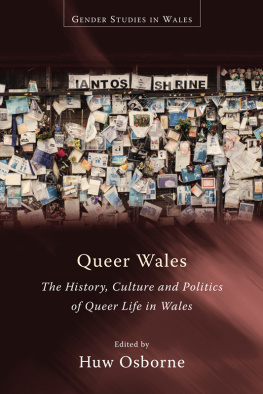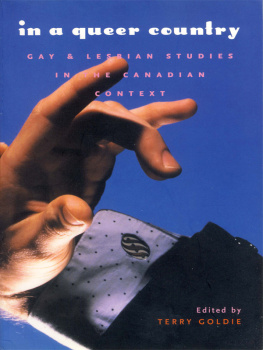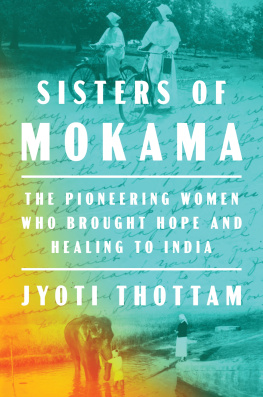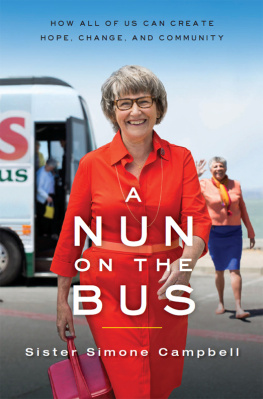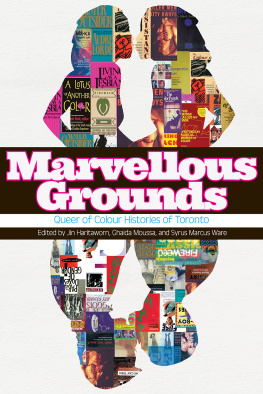Contents
Guide
Pagebreaks of the print version
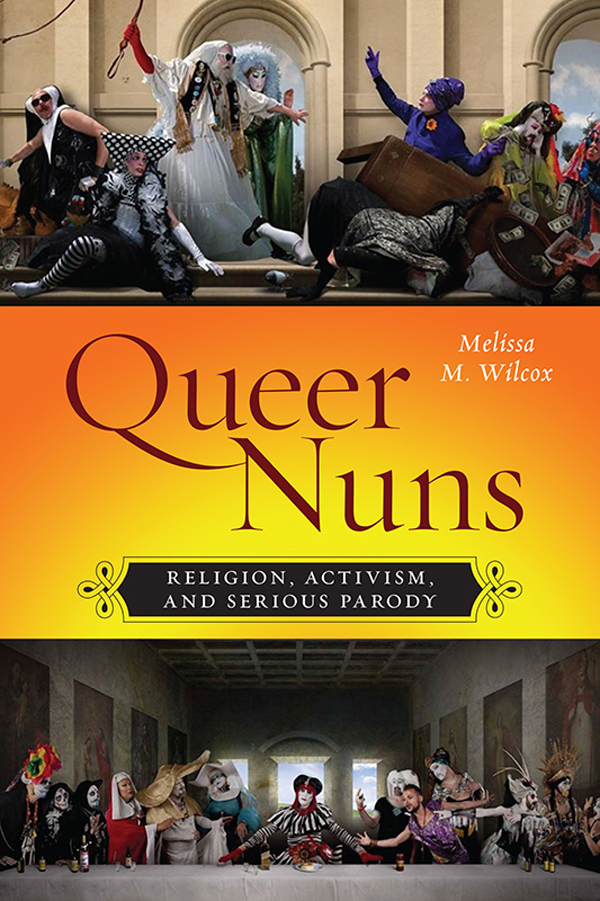
QUEER NUNS
SEXUAL CULTURES
General Editors: Ann Pellegrini, Tavia Nyongo, and Joshua Chambers-Letson
Founding Editors: Jos Esteban Muoz and Ann Pellegrini
Titles in the series include:
Times Square Red, Times Square Blue
Samuel R. Delany
Queer Globalizations: Citizenship and the Afterlife of Colonialism
Edited by Arnaldo Cruz Malav and Martin F. Manalansan IV
Queer Latinidad: Identity Practices, Discursive Spaces
Juana Mara Rodrguez
Love the Sin: Sexual Regulation and the Limits of Religious Tolerance
Janet R. Jakobsen and Ann Pellegrini
Boricua Pop: Puerto Ricans and the Latinization of American Culture
Frances Ngron-Muntaner
Manning the Race: Reforming Black Men in the Jim Crow Era
Marlon Ross
In a Queer Time and Place: Transgender Bodies, Subcultural Lives
Judith Halberstam
Why I Hate Abercrombie and Fitch: Essays on Race and Sexuality
Dwight A. McBride
God Hates Fags: The Rhetorics of Religious Violence
Michael Cobb
Once You Go Black: Choice, Desire, and the Black American Intellectual
Robert Reid-Pharr
The Latino Body: Crisis Identities in American Literary and Cultural Memory
Lzaro Lima
Arranging Grief: Sacred Time and the Body in Nineteenth-Century America
Dana Luciano
Cruising Utopia: The Then and There of Queer Futurity
Jos Esteban Muoz
Another Country: Queer Anti-Urbanism
Scott Herring
Extravagant Abjection: Blackness, Power, and Sexuality in the African American Literary Imagination
Darieck Scott
Relocations: Queer Suburban Imaginaries
Karen Tongson
Beyond the Nation: Diasporic Filipino Literature and Queer Reading
Martin Joseph Ponce
Single: Arguments for the Uncoupled
Michael Cobb
Brown Boys and Rice Queens: Spellbinding Performance in the Asias
Eng-Beng Lim
Transforming Citizenships: Transgender Articulations of the Law
Isaac West
The Delectable Negro: Human Consumption and Homoeroticism within US Slave Culture
Vincent Woodard, Edited by Justin A. Joyce and Dwight A. McBride
Sexual Futures, Queer Gestures, and Other Latina Longings
Juana Mara Rodrguez
Sensational Flesh: Race, Power, and Masochism
Amber Jamilla Musser
The Exquisite Corpse of Asian America: Biopolitics, Biosociality, and Posthuman Ecologies
Rachel C. Lee
Not Gay: Sex between Straight White Men
Jane Ward
Embodied Avatars: Genealogies of Black Feminist Art and Performance
Uri McMillan
A Taste for Brown Bodies: Gay Modernity and Cosmopolitan Desire
Hiram Prez
Wedlocked: The Perils of Marriage Equality
Katherine Franke
Archives of Flesh: African America, Spain, and Post-Humanist Critique
Robert F. Reid-Pharr
Excesses of the Sixties: Black Performance on the Outskirts of the Left
Malik Gaines
The Life and Death of Latisha King: A Critical Phenomenology
Gayle Salamon
Queer Nuns: Religion, Activism, and Serious Parody
Melissa M. Wilcox
For a complete list of books in the series, see www.nyupress.org
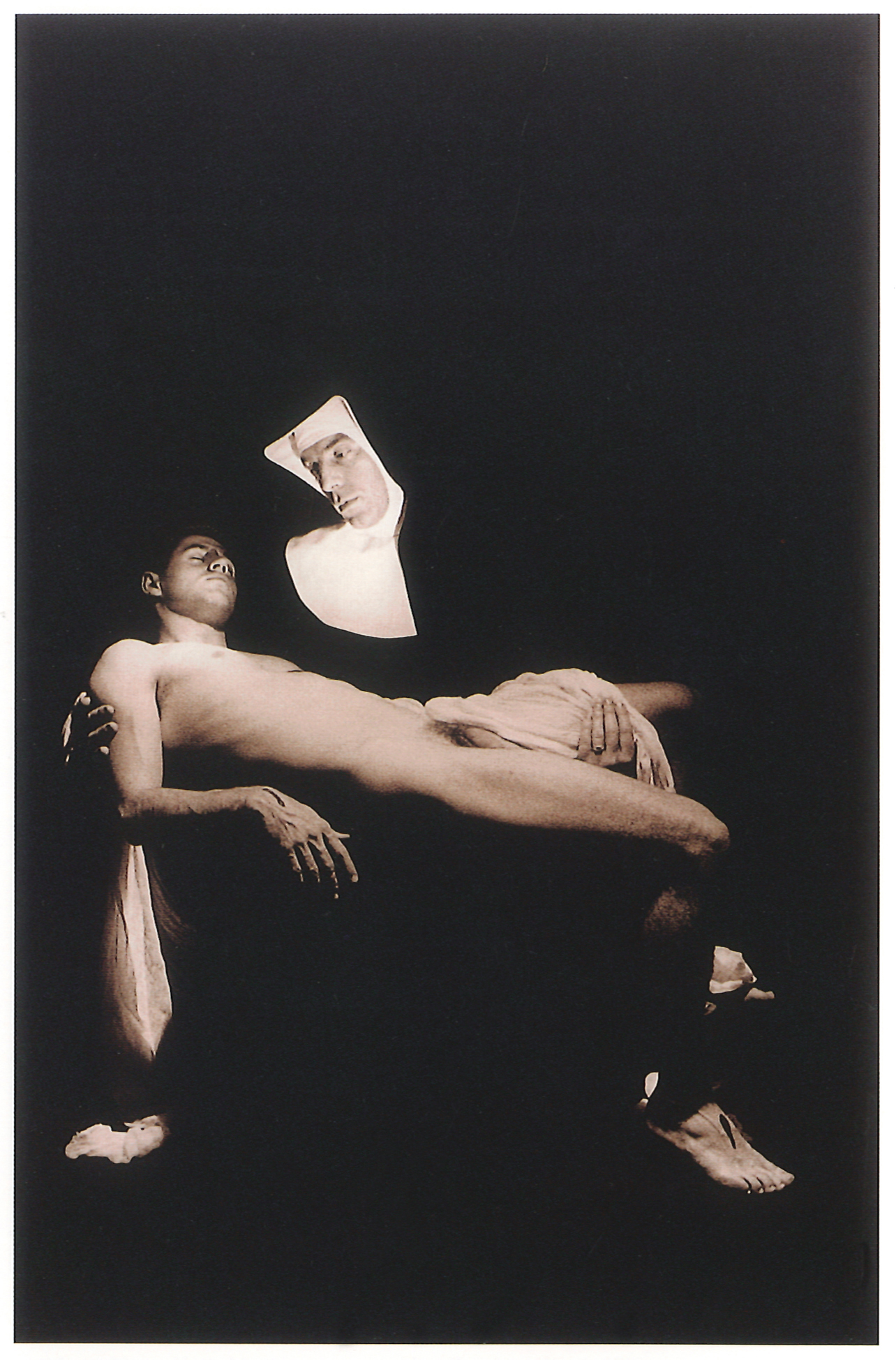
Untitled ( AIDS Piet ), by David Edwards (Sister Mary Dazie Chain), featuring Mother Inferior and Barry Lewis.
Queer Nuns
Religion, Activism, and Serious Parody
Melissa M. Wilcox

NEW YORK UNIVERSITY PRESS
New York
NEW YORK UNIVERSITY PRESS
New York
www.nyupress.org
2018 by New York University
All rights reserved
References to Internet websites (URLs) were accurate at the time of writing. Neither the author nor New York University Press is responsible for URLs that may have expired or changed since the manuscript was prepared.
Library of Congress Cataloging-in-Publication Data
Names: Wilcox, Melissa M., 1972 author.
Title: Queer nuns : religion, activism, and serious parody / Melissa M. Wilcox.
Description: New York : NYU Press, 2018. | Series: Sexual cultures | Includes bibliographical references and index.
Identifiers: LCCN 2017034141 | ISBN 9781479864133 (cloth : alk. paper) | ISBN 9781479820368 (pbk : alk. paper)
Subjects: LCSH: HomosexualityPolitical aspectsChristianity. | Gay activists. | Gay liberation movement. | Parody.
Classification: LCC BR 115. H 6 W 5425 2018 | DDC 306.76/6dc23
LC record available at https://lccn.loc.gov/2017034141
New York University Press books are printed on acid-free paper, and their binding materials are chosen for strength and durability. We strive to use environmentally responsible suppliers and materials to the greatest extent possible in publishing our books.
Manufactured in the United States of America
10 9 8 7 6 5 4 3 2 1
Also available as an ebook
This book is dedicated to the promulgation of universal joy and the expiation of stigmatic guilt.
It is written in memory of those study participants who joined the Nuns of the Above during the course of my research:
Sister Karma Za Betch, The Abbey of St. Joan (Seattle, Washington)
Father Oh, Mary!, Abbey of the Big Red Wood (Eureka, California)
All royalties from sales of this book will be donated to the Sisters of Perpetual Indulgence.
CONTENTS
PREFACE
I cannot remember the first time I saw a Sister of Perpetual Indulgence. On the day in 1979 when three gay men stepped out into the Castro wearing retired Roman Catholic nuns habits, I was coloring Easter eggs some twenty miles away. No doubt my father, a dedicated Herb Caen fan, read that famed San Francisco Chronicle columnists bemused report on the Sisters upcoming fundraiser for gay Cuban refugees in October 1980. He and my mother might even have discussed other Chronicle articles on the Sisters at the dining table over the years; certainly they recall being aware of the group long before I began my research. Yet I have no memory of such conversations.
My first conscious memory of seeing the Sisters is at the 1995 Los Angeles Pride parade, the year before that citys house came into existence. The Sisters I saw were probably from San Francisco, which may explain why they were so familiar to me. I recall knowing already who they were, and cheering so loudly that they grinned and came over to me on the curb. Most likely I knew of them from earlier Pride parades in San Francisco, but they have been a part of my life for so long that the origins of our first encounter are lost to memory. Having grown up in the Bay Area and come out on a college campus where the LGBT student group was a chapter of Queer Nation, I was perhaps more likely than most scholars to be drawn to write a book about the Sisters.
But having seen even in my undergraduate days the rich potential of connecting queer studies with the study of religion, and having done my doctoral work as part of a research group that encouraged the study of religion in unexpected places, also primed me to see in the Sisters a fascinating opportunity to think about religion, sexuality, gender, embodiment, and activism in complex ways that reflect the equally complex communities in which the Sisters work and from which they draw their members. Such reflections on complexity are a key theme of this book, focused through the analytical concept of serious parody.


